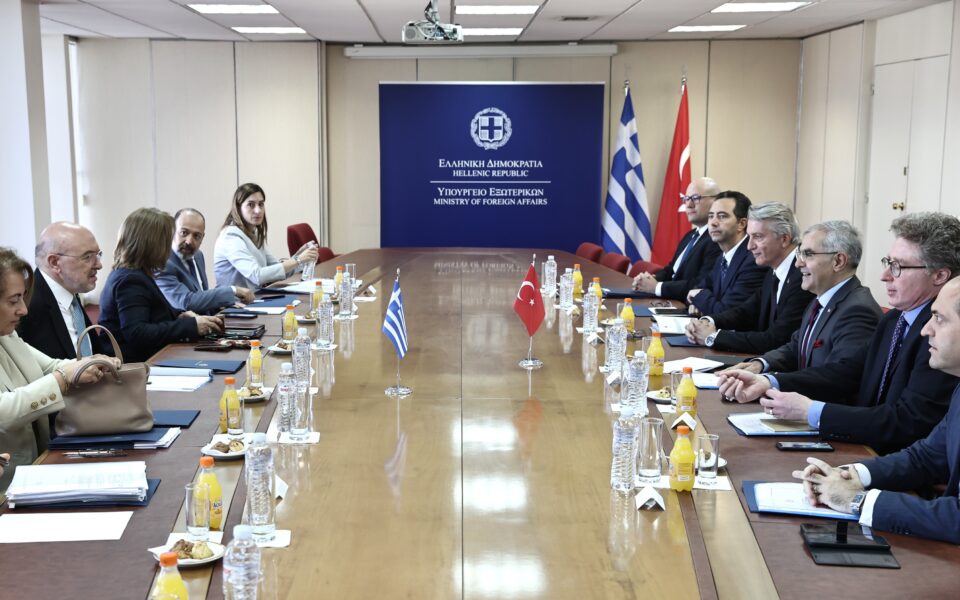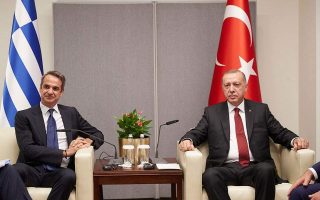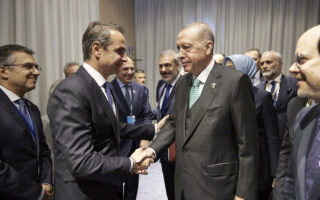The Greece-Turkey rapprochement and the war

Turkish President Recep Tayyip Erdogan’s harsh rhetoric against America and Israel will set back the efforts he has seemingly undertaken lately to improve relations with, among others, the West and more specifically the US; still, that should not impede the rapprochement that is under way between Athens and Ankara.
For its part, Greece has made clear that it wants the existing channels of communication with Turkey to remain open and it is taking steps to ensure that the improved atmosphere of the last few months continues.
The planned meetings on the deputy foreign ministers’ level on Monday and Tuesday, and those on the confidence building measures in November are moving ahead, as is the High-Level Cooperation Council set for December 7 in Thessaloniki, northern Greece.
Nevertheless, there is some concern that despite the fact that Ankara has recently been cooperating on the migration issue, Erdogan might reopen Turkey’s borders to increase the pressure on the West, which will obviously negatively impact on Greece, as the frontline EU member state.
For the time being, this remains a worst-case scenario that may not materialize, but given the tense situations of 2015 in the Aegean and 2020 at the Evros border, Greece’s coast guard and other responsible authorities, in cooperation with Frontex, will increase patrols and the deployment of personnel on land, to prevent a potential inflow of people.
As Erdogan, in his effort to project himself as the leader of the Muslim world, is waging a campaign against Israel and the West, accusing Washington of protecting and arming terrorists and of sending its naval forces to the area in order to commit “a massacre,” the influence of western friends and allies who supported the Greek-Turkish dialogue, might wane.
In this context, the Turkish president’s antagonistic rhetoric and actions might delay deliberations regarding the upgrade of older and the sale of new F-16 fighter jets by the US.
Still, these developments and the wider context of the situation in the Middle East should not affect the decision taken by Athens and Ankara to engage in a less adversarial setup. An atmosphere of relative calm between them benefits both. The last thing anyone, including Turkey, wants right now is another source of friction and tension.





